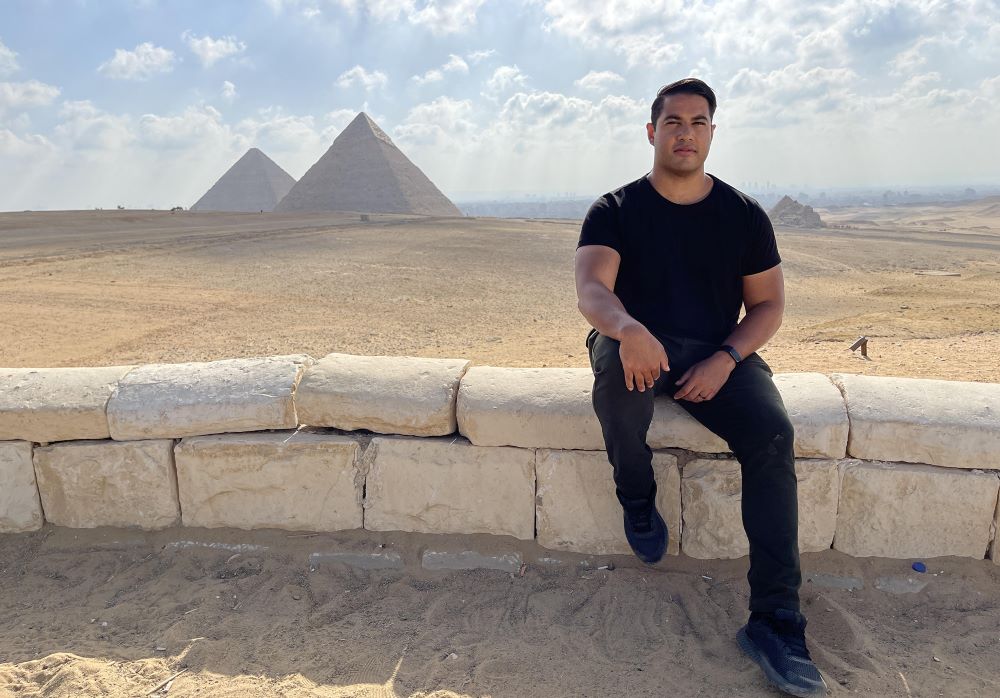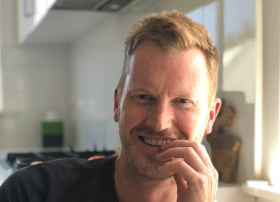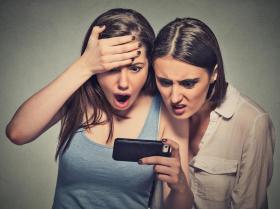‘We shoot the show in 11 different countries, right? But the hardest place to shoot in is to London, because the moment the title is mentioned, suddenly locations and talent just disappear,’ laughs Marc Fennell, creator and host of television series Stuff the British Stole.
Fennell, a Walkley Award-winning journalist, is the writer, director and Executive Producer of Stuff the British Stole, which began life as a podcast in 2020 before making the jump across to television as an Australian-Canadian co-production.
Across multiple episodes, the popular program explores the impact of colonialism through the stories of objects displayed in the British Empire’s various museums – objects that some see as the loot of a rapacious colonial power, others as priceless objects that have been carefully preserved by their current custodians and are now showcased for the whole world to see.
The complexity of such conversations reflects the changing nature of museums over time, Fennell believes.
‘Speaking in very broad brushstrokes, museums and galleries began as the playthings of rich people, right?’ says Fennell.
Adopting a stereotypically posh British accent, he adds, ‘I’ve put together this fabulous collection of things, and doesn’t it show me to be very, very smart? I’m going to show it off.‘
Switching back to his own accent, Fennell continues, ‘It was about a bunch of rich dudes in top hats categorising the world as they saw it and placing themselves at the top. That’s a very broad brushstrokes view of the early days of the Western modern museum. And eventually it transitions into “Oh, but it’s a social good” – which was true!’ he enthuses.
‘I mean, controversially, I love the British Museum. I think it’s an amazing space. I love it dearly. But its origins, as are the origins of all Western museums, is basically as a collection of things that belong to rich people. There is this idea that, “We’re the pinnacle of civilisation and we will categorise the rest of the world,” and I think that DNA has trickled down to every museum around the world.’
Stuff the British Stole would not have been made even 20 years ago, Fennell believes; it’s only recently that cultural institutions and the people who work in them have become comfortable discussing provenance and repatriation – a cultural shift that meant Stuff the British Stole landed at just the right moment in history.
‘Something that took me by surprise when the podcast first launched is that it did something really unusual, where it shot to number one in the podcast chart in Australia and a few other places. And until that moment, I really thought I was just doing a niche show about objects in museums. I don’t think I’d fully processed that there was a sort of reckoning happening in culture where people were re-examining the past,’ Fennell says.
The same year Stuff the British Stole landed as a podcast, protestors began tearing down statues of slavers in Bristol and colonial invaders in Boston and other cities, in the wake of the #BlackLivesMatter movement.
‘We were just there at the right time, to some extent. And even now, if it weren’t for the fact it was a hugely successful podcast, I’m not convinced that a show with such a spicy title would actually get commissioned today,’ he laughs.
Even today, the contested history explored in Stuff the British Stole (the new series of which examines the likes of the Parthenon Marbles with special guest Stephen Fry, the provenance of a mummy of a seven-year old Egyptian child in Sydney University, and the story of a young Aboriginal girl stolen to be the plaything of the Tasmanian Governor’s daughter – whose doll was taken back to England while she herself was left behind) remains a difficult topic for some in the cultural sector.
‘One of the sadder parts of doing this project is realising that while there are tonnes and tonnes and tonnes of British people who do understand this history, British institutions are still very uncomfortable with it,’ Fennell says.
‘I’ve a friend that works at a major British broadcaster, and they’ve been working on something about the British Museum. They’ve explained how it’s still so ingrained in the culture there that the Museum is sort of a sacred place that preserves people’s cultures from around the world.’
Read: Australians fighting for the Parthenon Marbles’ return
He’s quick to add his support for people working in the museums and galleries sector. ‘You’re not getting into the museum and gallery business for your own personal gain. You’re getting into it because you love knowledge, you love sharing knowledge and you love learning. So these are good people. But I also think museums and galleries are navigating a really complicated, really fast-shifting culture, where there is, in some cases, a real reticence to [give things back] for a variety of reasons.’
Such reasons, he says, can include a lack of clarity concerning the specific community that should be the custodians of a specific object or objects, and the challenge of determining who the original “owner” of an object was (a challenge Fennell explored in the first ever television episode of Stuff the British Stole, about the Koh-i-Noor diamond).
‘Every object has its own story, its own trajectory. And what do source communities actually want? What was the truth of how it got there? That’s what fascinates me,’ he tells ArtsHub.
‘We’re largely going to be talking about the impact of Stuff the British Stole on museums and galleries and cultural spaces and how cultural spaces are changing in light of it … and sharing some learnings about how to talk about past in a way that is still informative and accurate, but also truthful and entertaining. And how to bring messy and complicated parts of the past to life in the context of culture.’
Fennell is keen to explain that it would be unfair to see the program as “Brit-bashing”.
‘People are like, “Well, the Brits weren’t the only people who stole things. The Mongols stole things and the Romans stole things,” and yes, that’s true, but we don’t start Parliament with “Hail Caesar” and Genghis Khan’s not on our coins. Like it or not, the British Empire is the regime that most shaped our lives in places like Australia or Canada or anywhere else that broadcasts the show. So that’s why it’s important to reexamine the British Empire’s legacy, good and bad,’ he explains.
Marc Fennell recently spoke about the program, and the stories behind it this week, at Sydney’s REMIX summit on Friday 14 June.





